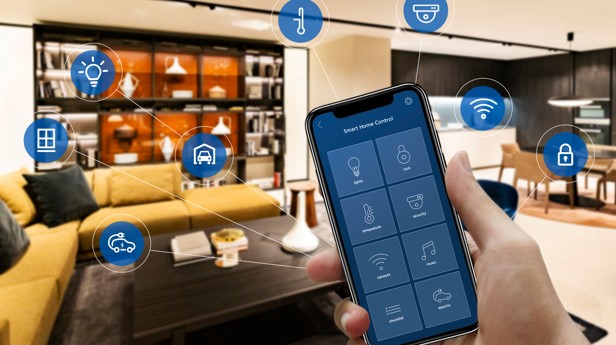Statista notes that the Australian smart home industry will achieve revenue surpassing 4.5 billion U.S. dollars by 2026. Notably, the Comfort & Lighting smart home segment has the highest user penetration rate of 20.73%.
"Incorporating smart home technology into real estate holds significance for mortgages as it can positively influence property valuations and borrower appeal. The added value from smart technology aligns with the borrower's investment and provides lenders with a more secure asset," says second mortgage loan provider Shane Perry of Max Funding,
Smart homes transitioned from futuristic visions to tangible realities. Real estate has keenly embraced this trend, recognizing its substantial financial benefits.
Here are five financial upsides of smart home integration in real estate:
1. Increased Property Values
Smart home integration can elevate property values. Today's homebuyers seek living spaces and modern lifestyles that align with their tech preferences. Homes equipped with smart technology, encompassing integrated security, automated lighting, and climate control, hold a distinct appeal, enhancing market competitiveness.
2. Cost Efficiency And Energy Savings
Smart devices transcend convenience, offering significant long-term cost savings. Energy-efficient smart thermostats, for instance, adapt heating and cooling based on residents' patterns, reducing energy consumption. It translates to environmental benefits and lower utility bills—a compelling incentive for potential buyers.
Smart lighting systems also optimise energy use by turning off lights in unoccupied rooms. It allows real estate agents to attract budget-conscious buyers and emphasise the financial benefits of smart home integration.
3. Reduced Marketing Time
In the competitive real estate arena, a property's time on the market directly influences its perceived value. Smart home integration can expedite sales by attracting a broader range of buyers.
The allure of remotely controlling security, lighting, and appliances resonates with tech enthusiasts and those seeking convenience. Consequently, smart homes spend less time on the market, cutting carrying costs for sellers and facilitating quicker transitions to new investments.
4. Alluring Rental Properties
Smart technology holds allure for real estate investors targeting rental properties, attracting high-quality tenants willing to pay a premium for enhanced convenience and security. Features like remote monitoring and control of locks, cameras, and alarms provide confidence to both landlords and tenants, effectively minimizing security worries. The potential for augmented rental income accelerates investment returns and enhances overall profitability.
5. Personalization And Luxury
Luxury real estate has always centered on unique experiences. Smart home integration adds a layer of luxury, enabling homeowners to customize their spaces extensively. From voice-activated entertainment systems to tailored lighting schemes, these features infuse opulence into living environments, resonating with affluent buyers.
Navigate Australian Real Estate
The integration of smart home technology has emerged as a transformative and financially lucrative trend. From enhancing property values and energy efficiency to reducing marketing time and attracting high-quality tenants, the financial benefits of smart technology are undeniable.

